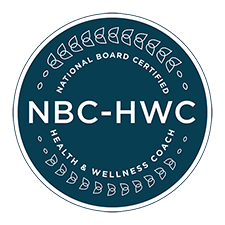
When I first learned of my son's addiction over 15 years ago, I did not understand what to do? I immediately thought I needed to save him, to lock him up; protect him and force treatment upon him. I didn't care what he thought I just wanted him to stop what he was doing to our family. I was not educated about addiction; I was not aware of the science behind what happens to the brain of an addict. I wanted to extinguish the behavior and stop it from destroying our family. I also needed a reprieve from the havoc and demands that having a teenage addict in the household causes. I was scared, depressed, surprised, and fearful for my other children, we were constantly on edge. I nagged, yelled, cried, begged, and sent him away to inpatient rehab and all of it failed. He ran away from home, stole from me, lied, hurt everyone who loved him and didn’t care. I needed help and had no idea where to turn? I blamed myself; I felt ashamed; I tried tough love but, no matter what I did the behavior continued to escalate. Did you notice how many I's were used in the sentences written above. I now know "I" turned my son's addiction into an emotional overreaction, and this was more about me and what I wanted to happen and not about him.
Speaking from experience when we find out that a loved one has a SUD (substance use disorder) we quickly act with emotion and behaviors that may contribute to further negativity. Our emotional reaction is usually a self-serving response, which is especially rooted in the belief that because the family member loves us, they can stop using. There are so many misconceptions surrounding addiction and one of them is that addiction is a moral failing. That a person's substance abuse is a reflection of their character, upbringing, or a choice they were making. Why don’t they just make a new choice to quit and things will be fine. However, this couldn't be further from the truth. SUD's are driven by a wide variety of factors that contribute to addictive behaviors. First, we must look at genetics, because they play a role in whether a person becomes addicted. Next, a person may have formed maladaptive coping strategies and uses a substance to cope with different life situations. There may also be co-occurring disorders, like anxiety or depression at play; this can drive a person to seek solace in a substance. Thinking issues or other mental health obstacles may also coincide with a person's substance use.
So how does this happen? Simply put, substance use causes changes in the brain and this drives a person to seek out that "euphoric state" they have found over and over again. People who are experiencing addiction may deny responsibility or take no accountability for their behavioral actions or their role in the situation. They may use manipulation to get what they want and lie for self-protection, forcing a wedge between the person and their families. Many parents aren't sure how to manage addiction and may get angry and withdraw from their loved one which makes a relationship difficult. They may feel overwhelmed, not knowing which approach to take. Or they may choose a tough love approach, which could further damage the relationships of the family and the addicted person. As parents, we have a strong emotional connection to our child's substance use and usually believe we automatically know what is best for them, but chances are we are wrong. This may seem like a no-win situation, however, I promise you there are ways to battle this disease that are evidence-based and can help your family deal with addiction. Where we start is with our own thinking or understanding of addiction and its processes. With the right help parents and loved ones can learn to be open to the vast amount of solutions available. Please ask we are there for you!

